One Becomes Two: New Institutes
Please note: Since the 31st of March 2021 the Helmholtz-Zentrum Geesthacht – Center for Materials and Coastal Research has a new name: Helmholtz-Zentrum Hereon. More information www.hereon.de/name
The Helmholtz-Zentrum Geesthacht (HZG) founded two new institutes on March 1st : the Institute of Coastal Environmental Chemistry and the Institute of Carbon Cycles. Both institutes will contribute to the Helmholtz “Earth and Environment” research field as did the predecessor, the Institute for Biogeochemistry in Coastal Seas. Prof. Kay-Christian Emeis, who led the institute for eleven years, retired at the end of February. The two new institutes are led by Prof. Ralf Ebinghaus and Prof. Helmuth Thomas.
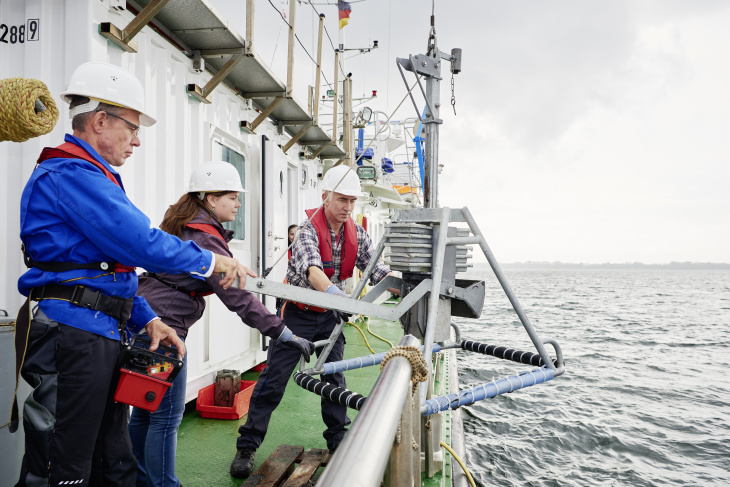
The search for pollutants in the sea is a focus of research in the new Institute for Environmental Chemistry in the Coastal Regions. Photo: HZG/Christian Schmid
Both the protection as well as the sustainable use of the coastal seas are embedded in the United Nations’ sustainability goals. These goals comprise many other aspects, including reducing hunger, poverty and mitigating climate change. These aims, however, come with substantial tensions. One example is that we wish to use more regenerative energy, such as biogas, to counteract climate change. This means increased nutrient input via rivers into the seas: eutrophication. This can lead to the death of fish due to oxygen depletion—but hunger is one of the problems also to be addressed. Climate protection and food supply therefore stand in opposition initially. The two newly founded institutes are dedicated to such challenges in different ways. Factors that influence the marine ecosystems must be recognized, understood and quantified—from the source, via rivers and the atmosphere to the open ocean and the seabed. Important steps here include the prioritization of pollutants and the study of methods for increasing the ocean’s carbon dioxide uptake so that sustainable and environmentally friendly approaches can be developed.
Coastal Environmental Chemistry
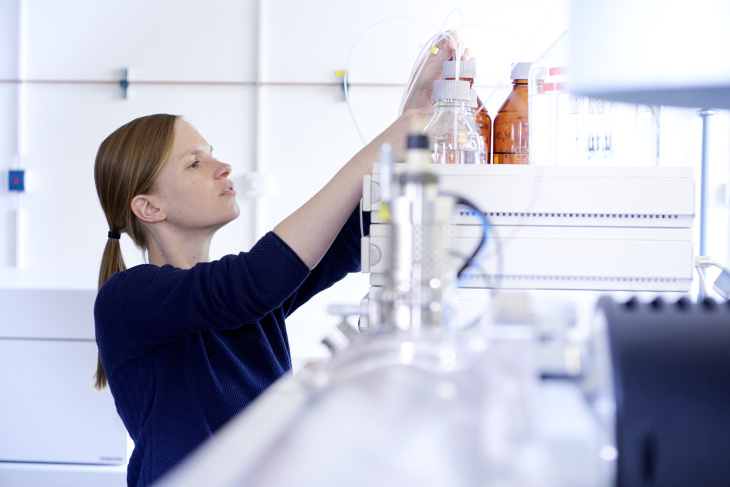
The institute provides unique laboratories and measurement equipment for chemical analysis. Photo: HZG/Christian Schmid
The scientists at the Institute of Coastal Environmental Chemistry identify novel and already recognized pollutants, their sources, transport pathways and their marine environmental spread. How the substances affect organisms and ecosystems is also researched and assessed. At the HZG, the researchers possess a unique chemical analysis infrastructure with which they can study environmental samples and detect pollutants. The spectrum includes several hundred classic and new organic pollutants, microplastics and nanomaterials, numerous elements, isotopes and radionuclides. The institute also employs complex modeling methods with which the behavior and fate of the pollutants in the coastal region can be studied and assessed. The Institute of Coastal Environmental Chemistry comprises the following departments: Inorganic Environmental Chemistry, Organic Environmental Chemistry, Environmental Radiochemistry, Chemistry Transport Modeling as well as Logistics and Organization.
Website of the Institute of Coastal Environmental Chemistry
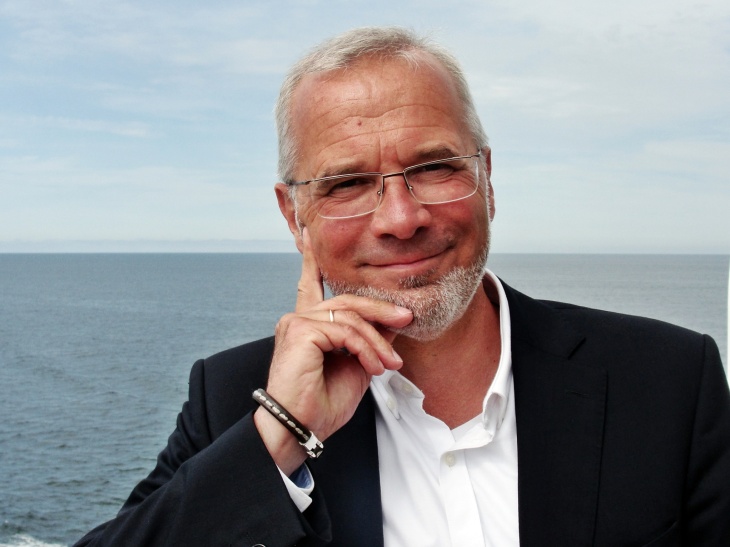
Prof Ralf Ebinghaus. Photo: private
Institute Director Prof. Ralf Ebinghaus has been working at the HZG since completing his PhD in 1991 and headed the Environmental Chemistry department for many years. He also teaches at the Institute of Sustainable and Environmental Chemistry at Leuphana University in Lüneburg. The environmental chemist is a member of the expert pool for the United Nations World Ocean Assessment and was honored as guest scientist for high-ranking international scientists by the Chinese Academy of Sciences in 2014.
Carbon Cycles
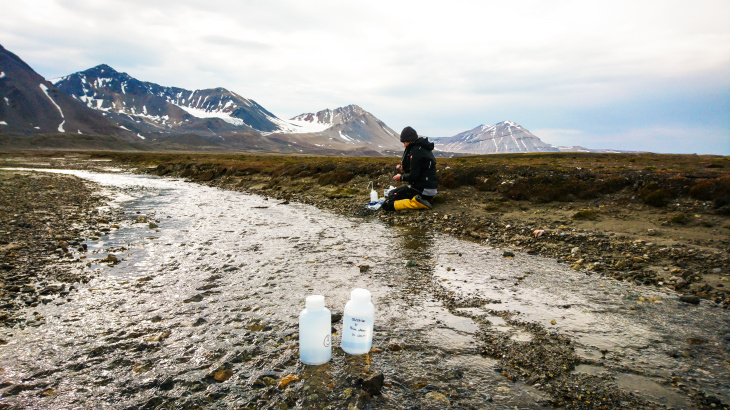
In the new Institute of Carbon Cycles, the scientists study the ocean’s acid binding capacity and its carbon cycle in connection with climate change—including in Arctic regions, such as here on Spitsbergen (Expedition within the framework of the ECOTIP project in 2020). Photo: AWI/Grit Steinhöfel
The focus of the new Institute of Carbon Cycles lies in the study of matter and energy fluxes in the coastal seas: specifically, carbon, oxygen, nitrogen and other nutrients as well as selected trace metals and isotopes. Human activity has been impacting the coastal seas for centuries—research is moving from the previous focus on damage mitigation and prevention toward sustainable utilization of the coastal seas. The new institute plays a central role here by studying how the coastal seas can be used as a sustainable resource and how to direct the carbon pathways.
Website of the Institute of Carbon Cycles
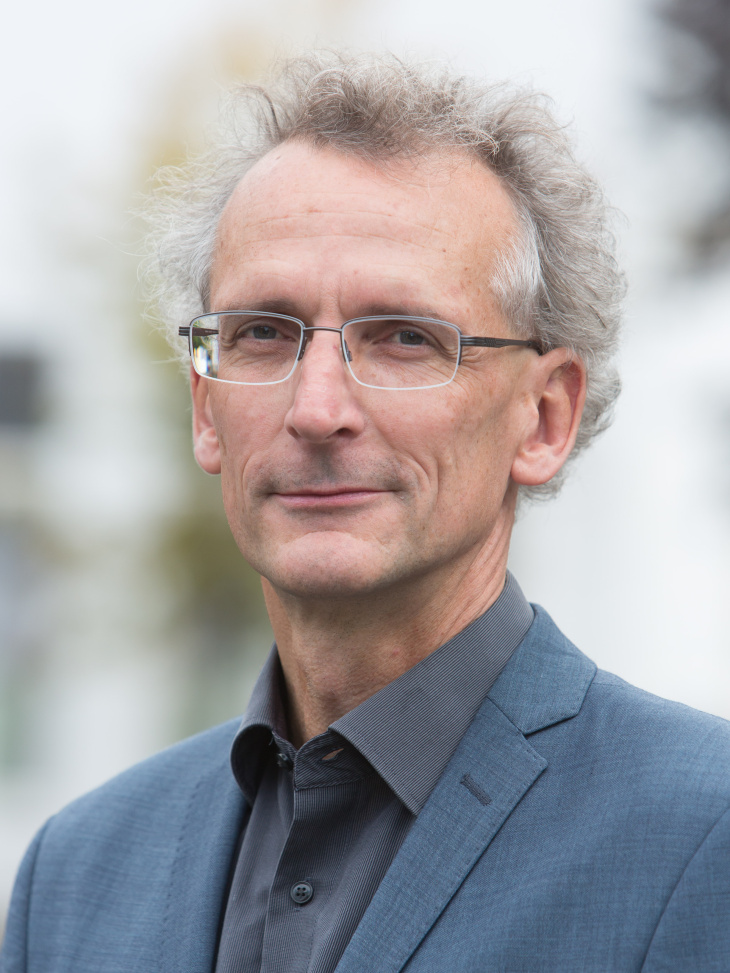
Prof Helmuth Thomas. Photo: DAAD/Kehrein
Topics here also include climate change interactions, the effects of multiple stress factors and human impact. The institute develops scenarios that can serve as a basis for societal decision making in the future. The institute is under development and will expand its expertise in the future.
Institute Director Prof. Helmuth Thomas came to the HZG in 2019 via the German-French climate research initiative “Make Our Planet Great Again” and founded the Alkalinity working group. He earned his PhD in oceanography in Rostock and taught for many years at Dalhousie University in Canada.
Providing Perspective
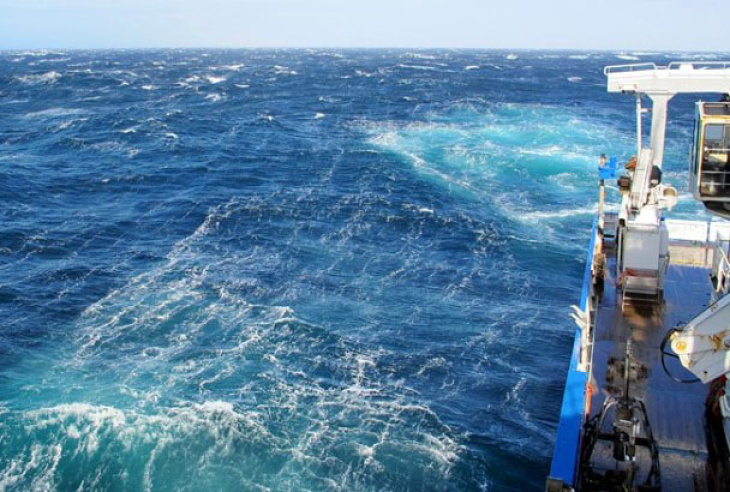
Oceans are a storehouse for carbon dioxide. Photo: HZG/Helmuth Thomas
Training and promoting emerging scientists are important aspects in both institutes. The institutes are establishing junior research groups and creating doctoral positions.
“We are very happy that we can strengthen our research in the fields of environmental chemistry and carbon cycles with the founding of the two new institutes,” says Mattias Rehahn, Scientific Director of the HZG. “We thank Professor Emeis for the outstanding work undertaken in the previous institute. Without this groundwork, we would not have been able to focus the HZG profile in this direction. We wish Prof. Ebinghaus and Prof. Thomas much success in their new roles.”
Contact
Institute of Coastal Environmental Chemistry
Helmholtz-Zentrum Geesthacht
Instiutte of Carbon Cycles
Helmholtz-Zentrum Geesthacht
Communication and Media
Helmholtz-Zentrum Geesthacht
